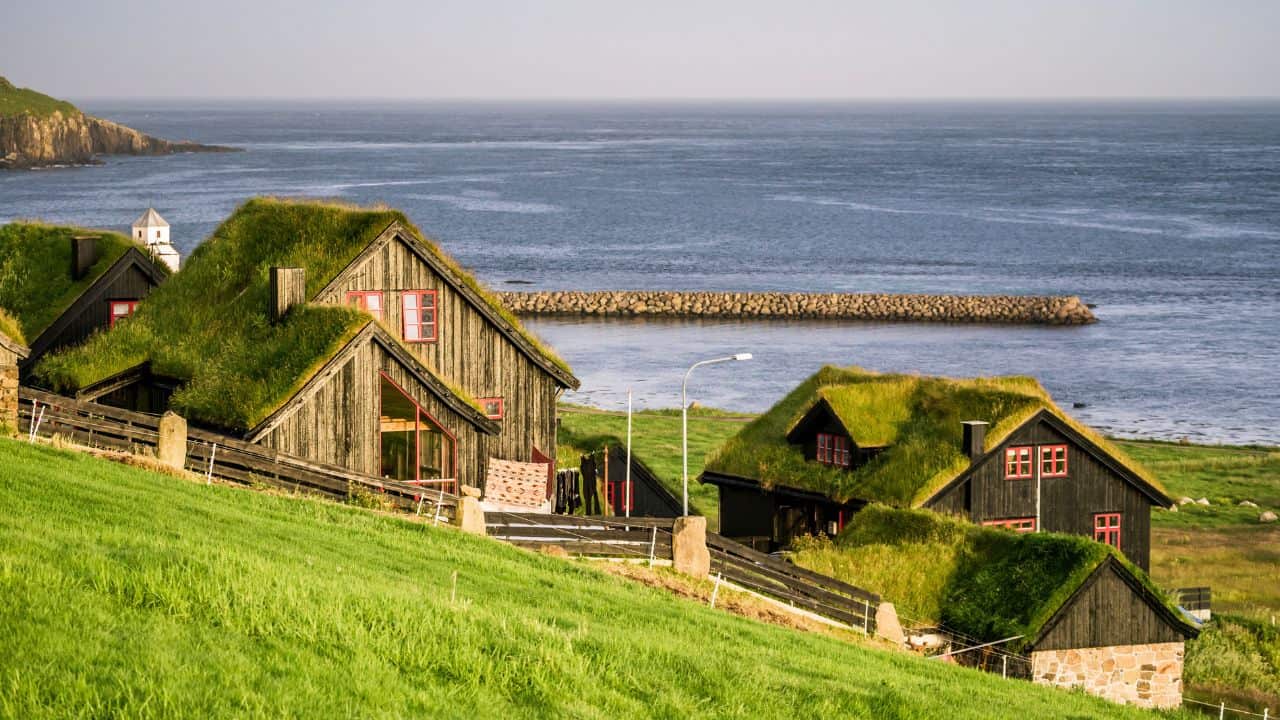When transport ground to a halt across the world because of the coronavirus pandemic, the effect on air quality was immediate and significant.
People in India reported being able to see the Himalayas for the first time; air pollution in cities around the world fell dramatically.
Skies across Surrey were no longer a zigzag of vapour trails from planes taking off from Heathrow and Gatwick, gradually dispersing until they filled the sky.
For once, real clouds took their place, or none at all. People living under flight paths had peaceful days and sleep-filled nights. But the benefits extended far beyond people’s back gardens. With up to 90% of flights grounded, greenhouse gas emissions plummeted.
Many people don’t see aviation as a problem because it makes up a relatively small amount of global emissions: around 5%.
But this is mainly because the vast majority of people across the globe have never been on a plane, so we need to look at this locally to see the true impact.

The real impact of flying
For those of us who are lucky enough to be able to access air travel, flights will make up the largest part of our carbon footprints. Just one return flight to LA emits more carbon per passenger than eating meat or driving for a year.
Flying to Peru to visit Machu Picchu can match the annual emissions of someone who actually lives there.
A flight to somewhere like Bali or Thailand takes us over our sustainable carbon budget for the year – and that’s before we take into account any of the things we need to do in order to live, such as feed or clothe ourselves. When we think about it in these terms we can see there’s little room for flying in a sustainable future.
We are at a crunch point for our future: our emissions have to drop significantly and permanently if we are to stand a chance of keeping a liveable planet for the generations to come. Such reductions basically mean changing pretty much everything about the way we live.
Dig in: How to combat your daily carbon emissions by planting trees from your phone

Moving to sustainable tourism
Of course, this makes it difficult for the many people who rely on tourism for their livelihoods.
Tourism isn’t new: for generations, people have made money from visitors coming to see their homelands. But the era of cheap flights has opened up many more places to large numbers of overseas visitors, to the extent that traditional livelihoods have now been replaced by tourism. The abrupt end to this has understandably caused hardship to a great many people.
The good news is, not flying doesn’t mean not travelling.
There are so many destinations that we can access overland, and when you consider that rail travel typically has 1/10th of the emissions of flying, it’s a great option for low-carbon travel.
The whole of Europe is on our doorstep, with many locations, including the UK’s favourite holiday destination, Spain, less than a day’s travel from London.
Rail-ly good: Top 5 European city adventures by train
And for the curious traveller, it’s a much more enriching experience than sitting on a plane.
Travelling overland allows us to really connect with where we are, the people around us, and the landscapes we’re travelling through. This way, the journey is part of the trip, rather than just a means to reach a destination.

Train not plane
Yet we’ve become so accustomed to jumping on a plane that we forget the alternatives exist.
London to Amsterdam is Europe’s second-busiest air route, despite it being an easy and cheap train or ferry ride.
It’s easy to see why air travel has become the default option for many people: a lack of tax on aviation fuel makes it an artificially cheap way of travelling, and headline flight times can make air travel seem very attractive in a society where we constantly seem to be rushing around.
But add in transfer times, check in and baggage claim, and high-speed train travel starts to look very competitive – and once you’ve added all the extras, the price can be pretty similar too.
The reduction in aviation during lockdown gave us a glimpse of what impact making different choices could have. The key word here is choice: when we choose to fly less, rather than be forced into it, not only is it more likely to have a lasting effect on behaviour change, but it can avoid the devastating impact on people’s livelihoods that we’re now seeing.
Consumer choice can dictate the direction of an industry, allowing jobs to be reallocated rather than simply lost.
We’ve already seen this in Sweden where a drop in domestic air travel in 2019 led to rail operators increasing the number of trains. New rail routes are being reinstated or introduced across Europe, which increases the job market in that sector.

Can you carry on not flying?
In our global society, we have never been so connected, but we are also incredibly vulnerable. Building resilience against a global pandemic has parallels to avoiding the climate crisis – focussing more on our locality, travelling less, and making things ourselves.
Being forced to stay put has enabled us to discover the wonders under our noses. The UK is full of enough treasures to fuel a lifetime of adventure.
5 Minute Guide To The Best Scottish Eco-Lodges
And let’s not forget we have our own tourism industry too, which we’d do well to support.
At Flight Free UK we want people to choose not to fly, by asking people to take a year off flying. It’s a way of inspiring longer-term behaviour change by taking on a short-term challenge, and discovering other ways of doing things.
It’s not only about reducing your personal emissions, but being part of a social movement away from flying.
If lots of us do this together, we will make it normal not to fly, and show politicians and industry that people are ready for change.
More and more people are choosing not to fly because of climate reasons. Could you join them?
Find out more and make the pledge at www.flightfree.co.uk.










